|
Starting any new thing can be an intimidating task, and dipping one's toe into the world of bird watching is no different. With over 2,000 bird species in North America and nearly 18,000 bird species in the world, birding can definitely seem like an overwhelming hobby to start. I found myself in that camp nearly a year ago when I was in the middle of the Okavango Delta studying for an exam that included being able to recognize 40 different bird species both by sight and by sound. Prior to my preparation for the trip, I had heard of maybe three of the bird species that we had to recognize -- not very many at all. I spent the first week trying to figure out how the heck I was going to learn the names, appearances and calls of all these birds while simultaneously learning the material from fourteen other modules in a month's time. I considered using Quizlet but felt like it would take away from the whole unplugged, middle-of-the-bush vibe. After toying with some ideas, I finally landed on a method that was incredibly successful for me and my learning style. I'll be sharing it with you, as I've gone on to apply it even back home as a growing birder.
After I made my first list I immediately made another list, trying to recall the different patterns that I'd recognized. I remembered more birds but still had to call upon the aid of my master list. And then I did it again and again and again and again, literally filling pages and pages of my notebook with a repeating list of 40 prominent birds of Northern Botswana. As the days went on and I continued making lists, it became easier and easier to recall the birds. *Side note: I'm a HUGE proponent of writing things down instead of typing them — a quick Google search of 'writing vs typing memory' will result in numerous scholarly articles highlighting the benefits of handwriting when concerning memory.* Even upon returning to the States, I wrote the list over and over again on anything — napkins, Band-Aid wrappers, planner margins, notebooks, scrap paper, etc. — in order to remember the names of these birds (and I still do). So how do you apply this practically? Wherever you live, Google common birds in your region. For me, I Googled 'common birds of North Carolina' and developed a list of 40+ birds. Write the list down by hand (40 really isn't too scary of a number, I promise). Study it. Read it. See what birds you might already know and what birds you're completely unfamiliar with. Find patterns in your list. How many raptors/owls/wrens/water birds/etc. are there? Do any birds have a color in their name? Are there any birds with similar names? Ask questions. Find silly patterns that help the names stick and solidify in your mind. And then write the list down again. And again. And again. Do it once during breakfast, maybe again at lunch, take a brain break from your primary occupation to jot down the list again, think about the list on your way to/from work, etc. Anytime you feel like it, try to recall the list. The more often you do it, the quicker you'll get it down.
Once you start paying more attention to birds, the easier it becomes. You start to notice differences in body types even if you see two birds of a similar color. Take note of sexual dimorphism, that is, the differences in appearance between males and females of the same species, such as in color, shape, size, and structure, that are caused by the inheritance of one or the other sexual pattern in the genetic material. For example, male cardinals are characteristically a brilliant red whereas females are a light brown with only tinges of red. In other species, such as the Florida scrub jay, both male and female morphs appear the same. There can also be differences when it comes to juveniles and adult size and plumage but, again, the more you bird, the more you'll become familiar with these differences. Note that this step doesn’t necessarily have to come after you've FINALLY memorized your list of birds. You can begin associating names with pictures, as it may be helpful while you're trying to memorize your list. The biggest point of getting a memorized list going is just to help you not jump into birding blindly. Associate each one with its proper call. Ahh, now to bird calls. I'm not going to lie, this is the most difficult part of the learning process for me, especially if I'm trying to learn the calls on my own. I'm a huge proponent of letting others help you, particularly when it comes to identifying bird calls. Personally, I have a fear that if I'm studying calls on my own I'll incorrectly learn and identify a call, which would eventually result in me having to unlearn the incorrect call and relearn the proper one (that's part of the reason I started the Charlotte Nature Journal Club, so that people can meet and learn about different aspects of nature together). Anyways, back to bird calls. In Botswana I learned that there is a German word — eselsbrücke — that literally translates into "donkey bridge" and refers to any mnemonic device or phrase that is used to remember facts or information. A very common example in English is "PEMDAS" (Parentheses, Exponents, Multiply, Divide, Addition, Subtraction). Applying this to birding, you hear the call and try to see if it reminds you of anything. Taking a Senegal coucal, the donkey bridge used to remember its call is that it sounds like a happy little ghost laughing. It's silly, but I haven't forgotten the call of this bird. And in the States, a tufted titmouse, for example, sounds like it's whistle-ly saying "Peter-Peter" over and over again. Whatever donkey bridge works for you works for you, and you should share yours with other birders because it may help them remember that call too. If you're trying to learn these bird calls with a group of people, circle up and have a bird call brainstorming session: play different the bird calls and try to come up with a donkey bridge for each of them. Do be sure to note that some birds have multiple calls that you may want to learn too. The best way to get better at something is to start doing it, and this is how I got my foot in the door to birding. There are many more aspects to birding, such as learning behavior and identifying birds in the field, but both of those will come as you begin reading more about birds and spending more time with them. Allow yourself to be curious and ask questions. Do research. When you're in the field, take note of observations you see and questions that arise. Talk to others about what you saw, as they may be able to help further develop your understanding of what was observed. For both of these tasks, I find the Audubon Bird Guide App to be incredibly helpful. Each bird species is fairly thoroughly profiled in description, songs and calls, range, migration, conservation status, discussion, habitat, feeding behavior, diet, nesting and eggs. Intentionally reading through birds' profiles will help you learn more about them. You may also want to consider a field guide to the behavior of birds in your region. I don't have any recommendations for a specific guide, but a quick Google search will bring up a few options.
When you're trying to identify birds in the field, use GISS (General Impression of Shape and Size) as a general rule of thumb for noting different characteristics:
There's a feature on the Audubon Bird Guide App that walks you through each of these steps as you're trying to ID a bird, but I think they are important for you to know for yourself if you're away from your phone or if you have to make note of a bird very quickly. While it may seem like a lot to note, it definitely becomes more natural the more you do it. Just like any new thing, birding takes practice. Get out there and walk around. Use your list to start learning and identifying birds in your area. As you get out more, you'll find more birds that you haven't seen before or aren't familiar with. As you begin to identify those, they'll stick in your mind too! Learning is a very fluid process that looks different for a lot of people, so there is no "right way" to start birding. I just found this method to be incredibly successful for me in deterring the feeling of being overwhelmed. Now get out there and start birding! As always, let me know if this was helpful for you or if you have any recommendations of your own!
1 Comment
Today my spirit has been heavy, harrowed with sorrow. Over the last couple weeks I have experienced the steadily increasing weight of the world’s burdens, but today it reached its tipping point. This morning as I distractedly completed my last final of the semester, I was overwhelmed with emotion and sadness for the family of Ahmaud Arbery, who, as I’m sure many of you know by now, was followed and fatally shot as he was jogging through a neighborhood in Brunswick, Georgia. I could hardly react, hardly process what happened (over two months ago, I might add). And yet, I experienced an irrepressible ache not only for the racial injustices and corrupt systems that plague the world but also for the injustices committed against the innocent on a daily basis. The part that saddens me the most is that WE are inflicting this pain upon each other and upon our planet. I look at nature, at animals, and I see innocence. I see creatures trying to survive. I see them dying at our hands, hit by our cars, driven out by our expansion, hunted for our pleasure. I see our planet being leeched of its resources. Our planet — and the animals that inhabit it — are desperately trying to adapt and survive to the changes we are so rapidly imposing upon them. It shatters my heart and brings me to tears that millions of animals are dying by our hands. But many people perceive nature and animals as cruel. They see a vulture scavenging a car-struck deer on the side of the road and don’t think for a second that it’s worth saving. They see a lioness kill a newborn zebra and a sympathy is evoked. But the seeming cruelty of nature — which is survival based — pales in comparison to the evil and cruelty that we are able to conjure in our hearts, lives and societies.
Humanity has become so comfortable in its own sin that when people see something as fundamental as survival in the wild they call it ‘cruel’ whilst simultaneously overlooking the far more horrid injustices we commit to our brothers and sisters. We have convinced ourselves that we are good enough on our own. When I look at humanity, I see our desperate need for a Savior. It’s obvious that we aren’t able to fix the problem ourselves or we would’ve figured out a way to do so by now. We have forgotten our humanness, our brokenness, our innately evil tendencies. We have forgotten how badly we need someone to save us. I called my mentor crying, asking him how he deals with the weight of all the evil in the world. And he reminded me that it serves as a reminder of our desperate need to be saved. It unmasks our humanity, showing us the reality of the human condition, and it makes room for Jesus to come in and heal our hearts, our lives and our societies if we let Him. The hope we get to cling to is named Jesus — He will come and rule the world one day with truth and justice. Until then, we get to cling to the promise that He will do so. I did a lot of wrestling today. A lot of contemplation with the Lord. A lot of allowing myself to feel everything. I felt physically heavy, a tangible weight pressing on my shoulders. I cried at the world’s brokenness. I cried at the fact that we live in a world in which people are more appalled at the seeming cruelty of nature than they are at mankind’s ability to hate and steal and murder. I cried at the fact that some people will never get to taste the assurance of the hope named Jesus. I cried to the Lord. Then I thanked the Lord for His promise of hope. I thanked the Lord that one day He will rule with truth and justice on the earth. I thanked the Lord that one day we and all creation will be free from the bondage we have made ourselves slaves to. I encourage whoever is reading this to feel everything you are feeling. Feel the anger, the brokenness, the sadness, the pain, the confusion and anything else. Cry. Lament. Talk to God. Allow yourself to be vulnerable with Him. Ask Him to bring up new things and comfort you in new ways. Allow Him to do so. Commit your hope to the coming of Jesus.
If you’ve never experienced Jesus in this way before, if you have any questions or if you need to just talk, please reach out to me. I’d love to chat with you. I spent most of today toying with the idea of taking our kayak out to the Manatee River, factoring in how I was feeling, what things graced my to-do list, and how many of the next few days were projected to have good weather. Eventually I decided I needed to clear my head and go out for a few hours. An old family friend’s story lingered in my memory, though, as it always does when I contemplate kayaking: several years ago a very large alligator, which was as long as his 11-foot-long kayak, swam next to him as he was on the water. No harm was done, but this story serves as a sobering reality of an alligator’s potential size, which pictures often don’t do justice. However, as a Florida native, my own experience and knowledge of alligator behavior pushed the story and the concern it evoked to the back of my mind. Putting into the water, I was excited for the opportunity to explore the river whose banks so remind me of “Old Florida,” an untouched tropical wilderness marked by high-reaching palms, thick underbrush and serene choruses of birds. Navigating different side streams, I much enjoyed my time cruising through what seemed to be a different world, a world in which animals experience relief from the ever-growing threats of habitat destruction and human-wildlife conflict. A large venue of vultures decorated a tree, squirrels and lizards rustled about the bank’s grassy undergrowth, and water birds stood wondrously still and well-camouflaged amongst the reeds. For me, it’s one of a few places in this world that seems so familiar yet leaves so much to be discovered. I eventually just sat, allowing my kayak to drift in the slow-flowing water. As my body was refreshed in the cool shade of overhanging trees, I sat chatting with God, speaking Biblical truths in the face of my worry and allowing my soul to be refreshed as well. How thankful am I that I serve a God — a good Father — who cares about the things we care about, who knows the depths of our hearts and the joys we gain from this world.
My brief retreat into the wilderness did have to come to an end, though. I paddled back at a consistent pace in hopes of returning in time to prepare for a 7-o’clock Bible study with a former teacher and some high school students. The boat dock came into sight as I rounded the bend and drifted closer to shore than I realized. It was in that moment that some big animal — unnoticed by me — and I gave each other quite a fright: in an instant the water EXPLODED around me in a big, loud, frantic manner, immediately sending waves of water spraying into my face. My head snapped to the right, from whence the initial burst came, as I tried to make out what was going. Eerily, I saw nothing but brown foaming, circulating water and undulating waves in the spot where the animal had disappeared. Holy crap, I thought, trying to process what was happening. My kayak rocked with the powerful, thrashing swells from the animal’s tail, and I knew I had startled a large alligator. As I felt it move through the water and under my kayak, there was naught I could do but stare at the bulging waves around me, watch water pour into the hull, hold my paddles still in my lap, pray I didn’t tip over, and ride out the surge, hoping that I wouldn’t see the gator resurface on my left. As soon as the water calmed in the slightest and as soon as I realized my periphery lacked the image of an alligator, I glanced over my left shoulder trying to catch a fuller glimpse of the animal. I didn’t see it, but I didn’t need to after what had just happened. Sparing time for one more double-take, I started beelining towards the dock. After only a few strokes, I slowed my pace, my hands shaking in disbelief of what had just happened. Adrenaline coursed though my body, having prepared me for fight or flight, but neither were necessary. The alligator wasn’t after me. It wasn’t chasing me. It was trying to get out of the situation just like I was. Though the ordeal took less than ten seconds, I will admit that there are only a few other notable times in which I have felt as vulnerable and helpless as I did in those seconds. It was the inability to do anything for that brief moment that invoked within me the greatest fear. Regaining my composure, I paddled up to the dock, tossing my waterlogged camera onto dry land, dragging the kayak up the ramp, and doubling-over in awe of what had just happened. Though my body instinctively shook, it wasn’t long before I was smiling at the insanity and wildness of what took place in the water just a few hundred meters away. The alligator and I startled each other probably the same amount. Reflecting on the whole thing, it’s obvious that the alligator wasn’t out to attack me by any means, and I would never say that it was. It was trying to get to a safer place, and I just happened to find myself between the animal and its safety, which is likely why I had that encounter at all. I would guarantee that there were plenty of gators (that I didn’t see, by the way) around during the two hours I was on the water, but I just happened to accidentally come between this one and its safe place. My dad was sure to bring to my attention, however, that it is alligator mating season. Mating takes place in early April, and nesting occurs from May to June. During this period, as occurs often in the animal kingdom, alligators may experience heightened levels of aggression. It’s a good reminder to carry with me in the back of my mind, especially if I go back out in the next few days. There is also a reality, though, that I was out on the water for about two hours and never once saw an alligator. And honestly, if I hadn’t been so close to shore and startled that alligator, I likely wouldn’t have known it was there either. This alligator's instinct was to flee, as is the initial reaction of many surprised animals. Most of the time when people become involved it’s because they stand in the path leading to the animal’s safety. When encountering wild animals, make sure they have an available escape route, for their sake and yours. Maybe there's more to having a relationship with the Lord than feel-good mantras, uplifting worship songs and out-of-context Bible verses. But if these aren't enough to get you through the challenges brought up by COVID-19, what is? 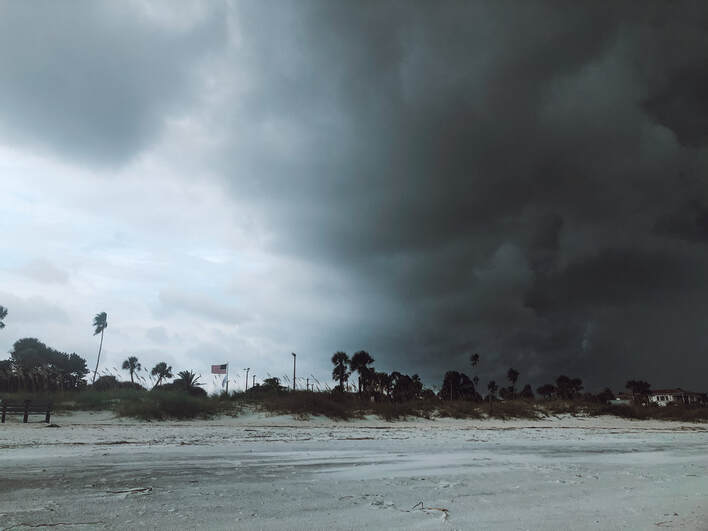 I want to establish that, first and foremost, I am talking to myself. This post serves as conviction from the Lord for myself and for others. It also serves as a reminder, however, of what is truly important during this time in which the whole world seems to be collapsing with fear and uncertainty. We've been in quarantine for about a week now, and I'm doing everything I can to keep myself from boredom, complacency and laziness. I'm not too worried about the virus itself -- I've long expected some kind of crazy pandemic-type thing to hit the US, and I actually trust the Lord about it a lot. It's not hard for me to trust Him with this (Side note: it is very hard for me to trust Him in other areas, and I had to repent for the pridefulness that arose from trusting Him so much over Coronavirus. The reality is that I have a very hard time trusting Him over the things that are of more importance to me). It is very difficult for people to trust Him through this, and rightly so. This is a lot to be confronted with all at once. Students across the United States have transitioned to online courses for the remainder of the semester. College kids have packed up their dorm rooms and headed home and returned early from study abroad programs and trips. Many businesses across the country have transitioned to allow employees to work from home. Others have yet to make changes, keeping employees at work out of necessity. Many businesses have been forced to close. People are losing jobs. People are falling behind on bills and payments. People are struggling to cope with the uncertainty and changes. People are getting sick. People are losing loved ones. People are experiencing the very real implications of this pandemic. Western Christianity is finally experiencing a TINY glimpse of what Christians around the world have been facing ever since Jesus walked the earth: discomfort, uncertainty, challenges and the impact of corruption induced by mankind's sin. For many, faith is being shaken. Foundations built upon the sand are crumbling under this storm (One of my close friends Chantel wrote an excellent blog post about what it looks like to be a disciple during this time -- it's definitely worth the read. You can find it here). “Therefore everyone who hears these words of mine and puts them into practice is like a wise man who built his house on the rock. The rain came down, the streams rose, and the winds blew and beat against that house; yet it did not fall, because it had its foundation on the rock. But everyone who hears these words of mine and does not put them into practice is like a foolish man who built his house on sand. The rain came down, the streams rose, and the winds blew and beat against that house, and it fell with a great crash.” Matthew 7:24-27 As I've talked with fellow believers, we've discussed the comfort of knowing that God is here in this time. God is turning this evil into something for His glory, and He's doing it at on international scale. Foundations built on anything other than the rock of God are being shaken, torn down and felled so that lives can be rebuilt upon the cornerstone of Jesus. We are experiencing something we've never experienced before, and we have the opportunity to encounter God in a way we've never experienced before.
But what does a foundation built upon the sand look like? Ah, the enemy is crafty. He has given many people a false sense of control over their lives through financial stability, job security, home ownership, education and degrees, and through the lie that Christians are supposed to "have it easy." There are a couple harsh realities to be addressed here: (1) Once we give our lives to Christ, they are no longer our own. Then He said to them, "Whoever wants to be my disciple must deny themselves and take up their cross daily and follow Me. For whoever wants to save their life will lose it, but whoever loses their life for My sake will be saved." Luke 9:23-24 We are not meant to have control over our lives. The whole point of surrendering our lives to the Lord is trusting that He knows better than we do, that He is a better God over our lives than we are. This is something we constantly have to do, though. I know for me, the temptation is to lay down my life and then pick it right back up again. We constantly have to lay down our lives. Pause and ask the Lord what it would practically look like for you to surrender your life to Him. (2) Christianity was never about living a life of comfortability. This is evident throughout all of Matthew 10, when Jesus sends out the 12 apostles. Wrapped up in this passage is a message that is both an encouragement and a warning. The whole thing is incredibly convicting. If this is what following Jesus is supposed to look like, what is it that I am doing? God calls different people to different things, and I'm not saying that it's bad to have financial stability, job security, home ownership or education. What I am saying is that it's bad to build your life with those things as your foundation. Why? Because one day the storm will come, and your foundation will be put to the test. Well, my friends, that day is here, courtesy of COVID-19. We are in the midst of one of the most uncertain times in our lives, and our foundations are being put to the test. So where do you find yourself presently? Are you worried about what is going to happen to you and your family in the midst of this? Here are some encouraging verses: Matthew 6:34: "Therefore do not worry about tomorrow, for tomorrow will worry about itself. Each day has enough trouble of its own." Do not worry" is a command, not a suggestion. Luke 22:42 "Father, if you are willing, take this cup from me; yet not my will, but yours be done." Jesus prayed this prayer in the garden before He was taken to be crucified. This needs to be the center of our prayers: Not my will but Yours be done. Are you not experiencing the worry of the world and instead finding it easy to trust God through all of this? You should tell people, then, in encouragement. Give them an opportunity to have the hope that you were given. Show them the good news that is Jesus. Mark 16:15: He said to them, “Go into all the world and preach the gospel to all creation." A relationship with the Lord more than enough to get you through the challenges presented by COVID-19. It's time for you to assess where you are in your relationship with the Lord. Take this opportunity to grow in trusting the Lord if that's something you're struggling with. The implications are real: it means laying down your life in surrender to the Lord and letting go of control, not just saying "Trust the Lord!" It means changing your language from "I'm so worried about x, y and z" to "Even though it doesn't make sense, still You are God over my senses. God, Your presence is more real. I'll walk by faith and not by sight and put my trust in You" (from Even Though by We Will Worship). It's time for the lukewarm to make a decision. It's time to either trust the Lord or don't, to lay down your life or keep it. But don't be disappointed when you try to employ inspirational quotes and comforting Bible verses to rescue you without ever turning to the Father. It's time to radically trust the Lord in the way that He was always meant to be trusted. May the dust of the Rabbi cover you, Kerrington Ah, the mission field. I guarantee that if you've grown up in the church in any capacity you have heard about the mission field, whether it pertains to your personal mission field or your church's. When talking about mission fields many people reference Acts 1:8: "But you will receive power when the Holy Spirit comes on you, and you will be my witnesses in Jerusalem, and in all Judea and Samaria, and to the ends of the earth."
But how do you find your mission field? I believe that we all are capable of — and called to — having a mission field in senses both specific and broad. I consider it foolish to limit God's revelation of your mission field to one specific way, so please do not take this post the only way to discover yours. Rather, I want to share my experience with you. What I have found to be true concerning the discovery of one's mission field is the work of a couple different factors at play: - Your passions. - The good news of the Gospel for you. Your Passions. I am a firm believer that the Lord has intentionally instilled unique passions in each and every one of His image-bearers. For you created my inmost being; you knit me together in my mother’s womb. I praise you because I am fearfully and wonderfully made; your works are wonderful, I know that full well. Psalm 139:13-14 These passions can be anything: photography, nature, cars, teaching, music, etc. The list could go on forever. It's important to pay attention to your passions and interests, as the intentionality with which they were knitted into your being can serve as a map to your mission field. What are your passions? In what ways do you feel that your passions could be used to reach a certain group of people? Spend some time in prayer with the Lord sifting through your passions and asking how they can be used to glorify Him. (I find it of the utmost importance to warn each of you how quickly and subtly a passion can become an idol, as it did with me. Always pursue God more than the blessing, the Gift-Giver more than the gift.) God cares about the things we care about. He has put passions in our hearts for a reason. Personally, I have always been drawn to nature, animals and the wilderness. One day in the fall of my senior year of high school I was exposed to the idea that the scientific culture is a mission field, too. Ever since then, I have been convinced of my calling to the scientific world. While it was my passions that sent me in the direction I have pursued — the direction I feel very strongly the Lord was calling me to — the idea of my mission field has been honed with the revelation of the Gospel's good news to me. The Gospel's Good News. It wasn't until recently — like, three weeks ago — that I finally discovered what the good news of the Gospel is to me. Reflect here for a second — if you can't truthfully say that the Gospel is good news to you, that's okay. Pray and ask the Lord to reveal to you what the good news is for you. And then trust that whatever comes to your mind is the Holy Spirit speaking to you. For me, the good news is that there is no place on this earth — no wilderness — that is more wild than my relationship with the Lord. Now that I know what the good news is for my life, I want to tell everybody, but I especially want to tell people who are like me, people who put their hope in nature rather than in God. This is where the idea of specific and broad mission fields come into play. My specific mission field is people who are searching in nature for something that only God can provide. I have a heart for this group of people because that's the kind of person I used to be. I very deeply understand where they come from and what they search for. My mentor Brent, on the other hand, has a completely different perception of the Gospel's good news, and that allows him to have a different specific mission field, one with which I am unable to empathize as much. When I asked him how the good news of the Gospel effected his ministry, he replied with this: To me, the Good News, is that when I was least worth loving Jesus reached past my bitterness and hatred and saved me from myself. I don’t mean that on a grand, theological scale, I mean it personally. Literally, July 7th 2012, Jesus had an encounter with me in my room and stopped me from committing suicide. It’s the first bit of good news I ever heard and the only one I care about. My reasons for loving Jesus are unashamedly selfish; I wouldn’t love him if he hadn’t done that for me, and the Gospel would just be words on a page without it. I wish I was capable of loving him for who he is because he’s worthy of it. But I either wasn’t capable or wasn’t willing to live in such a way before July 7th. And, truthfully, it’s only after many, many more encounters with Him that I’ve found my desire to worship and serve him to be less selfish. That made my mission field extremely simple. I wanted to reach everyone but, mostly, I wanted to reach the people who were like me. The ones who grew up hearing about a man they’d never met. The one’s that well-meaning churches and friends and parents had convinced had life in Christ but were, in reality, just like me. Just people walking around, going through the motions, unknowingly waiting for the moment they realized their life was built on nothing. The ones who were like me. And upon asking a dear friend Chantel the same question, she replied: For my life, the good news has proven to be that Jesus came to redeem my true self. Not the person I have been taught by society to be. But the person who is most true to the child in me. We live in a world in which everything is predicated upon keeping up with the Joneses or even being the Joneses. The good news for me is that Jesus is the standard and His method of bringing me to Him is coming to me. This has shaped my mission field because, as a black woman in finance, so often black women are competing to be better than the next, simply as a self preservation tactic. I want to bring ministry into my mission field by being the person that is willing to help others realize that they are enough. That the true power of God is in them, and money is nothing to fear. I want to change the paradigm of thought associated with money, power and identity by bringing Jesus into the conversation. The good news is that you don't need "things" and there is nothing to keep up with. Simply be who you are and Jesus will come to you, no dollar signs or titles attached. The three of us have very different versions of what the Gospel's good news is in our lives, and it is that good news that shapes the mission fields that are very specific to us. Chantel is far better equipped to reach black women in finance than I am, and I am better equipped to reach bush-goers in Africa than she is. This is one of my favorite things about the power of Jesus and His ability to use each of our passions to further His Kingdom here on earth. Despite our different specific mission fields and the different good news that each of us has to share, each of our messages ultimately communicates the same thing, as my friend Graham pointed out when I asked him the question: I believe that in this life we all search for two things: love and satisfaction. We search for it in all these different areas of our lives, but nothing other than Jesus will give us the love and satisfaction that we so deeply crave. A relationship with God means that I am fully known and loved by the Creator of everything. Jesus satisfies me and helps me know that I am loved and enough. This brings me to the broader message that we all have to share: Jesus is the only thing that satisfies. No matter what desire we're looking to satisfy, Jesus is the only thing that will bring the satisfaction for which we search. We can convince ourselves otherwise — and be convinced otherwise by the enemy —, but the reality is that there is no job, no relationship, no accomplishment, etc. that will satisfy us the way that Jesus can and will, if we let Him. Nothing. And it is this broader message that allows us to reach a greater group of people: people who turn to things other than Jesus for love and satisfaction, no matter what that "thing" is to which they turn. This is what allows me to evangelize to a desperate church-goer who has never had a relationship with Jesus or to a black woman competing in the financial world. In the same way it allows Brent and Chantel to evangelize to someone returning from the African bush disappointed by the lack of satisfaction they had set out to find (which, ironically enough, was me about four months ago). While our Gospel experiences will be more helpful to specific people with similar experiences, the message is the same regardless: Jesus satisfies. Taking these two things into account — our passions and the Gospel's good news to us —, along with dedicated prayer and conversation with the Lord, we are able to find our mission fields. So if you're curious about the mission field the Lord may have in store for you, I'd greatly encourage you to spend some time with Him meditating over these things. If you feel like you already have an idea of what your mission field is, what is it? I'd love to hear how the Lord is using different people's mission fields to further His Kingdom in every area of the world! As always, if you have any questions, please leave them below. May the dust of the Rabbi cover you, Kerrington |
1 Thess. 2:2"...but with the help of our God we dared to tell His gospel in the face of strong opposition." Categories
All
Archives
April 2023
|
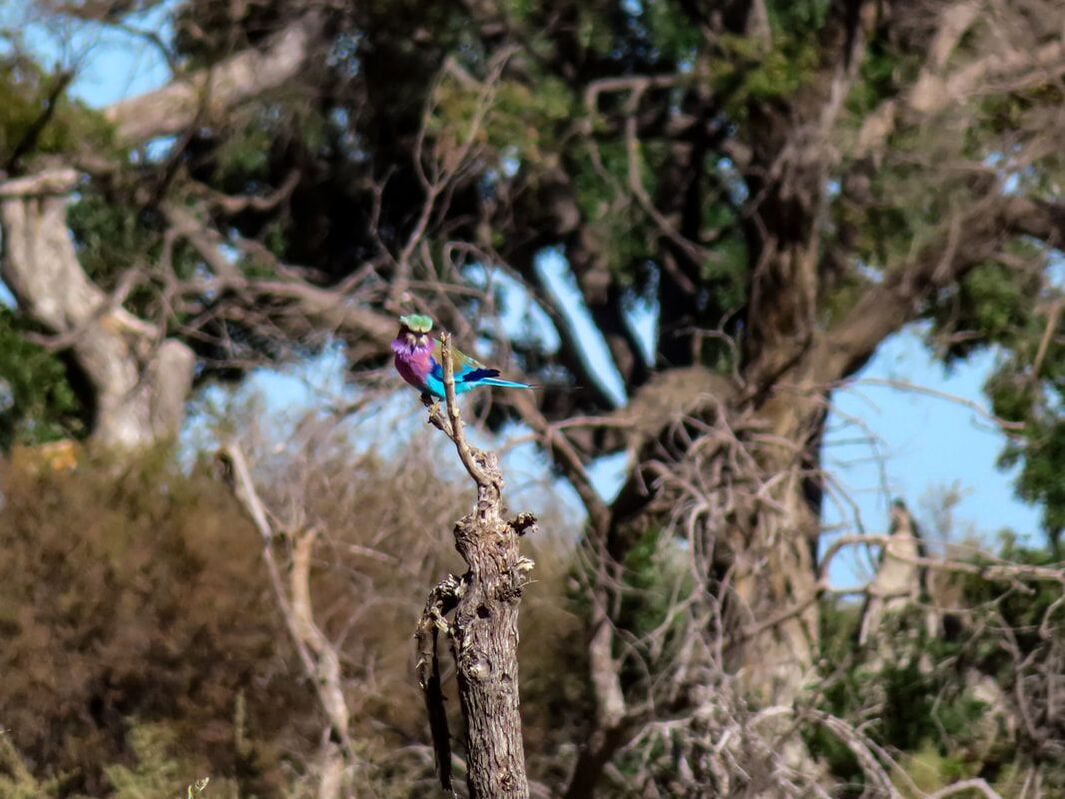
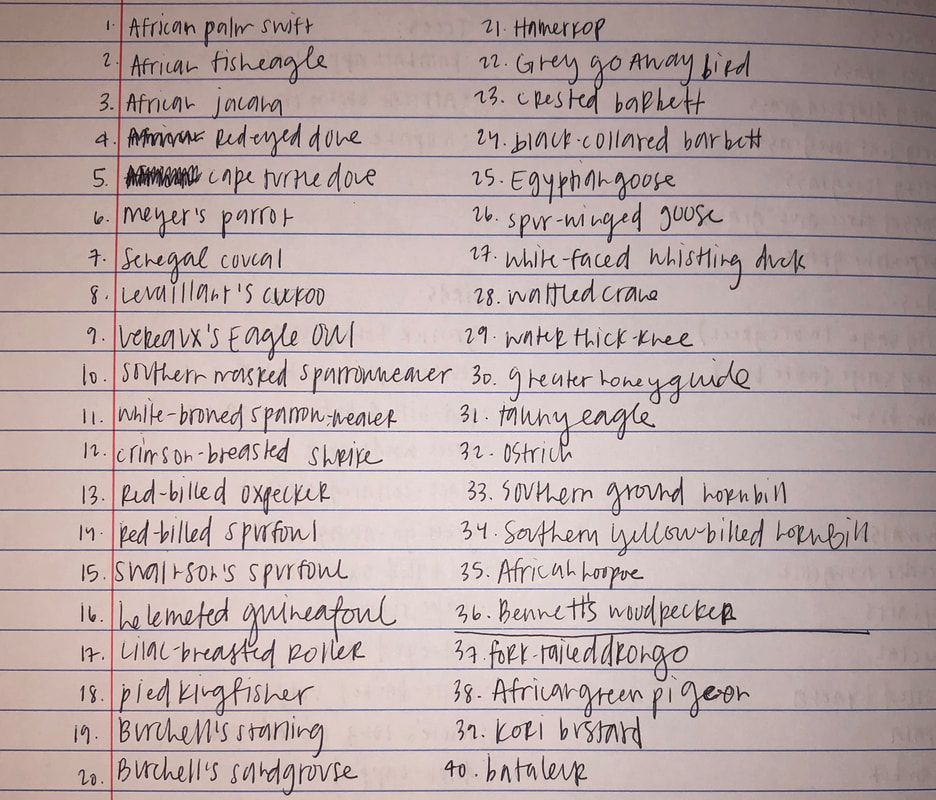
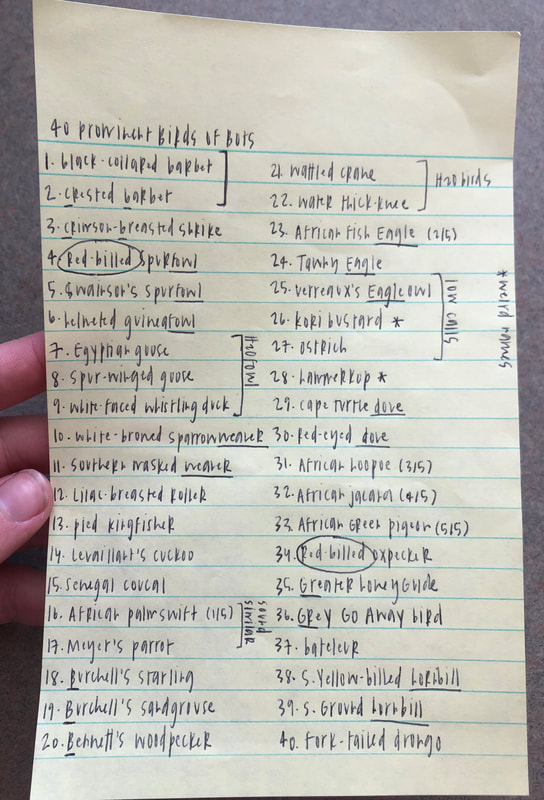
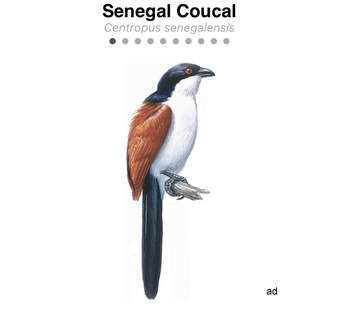
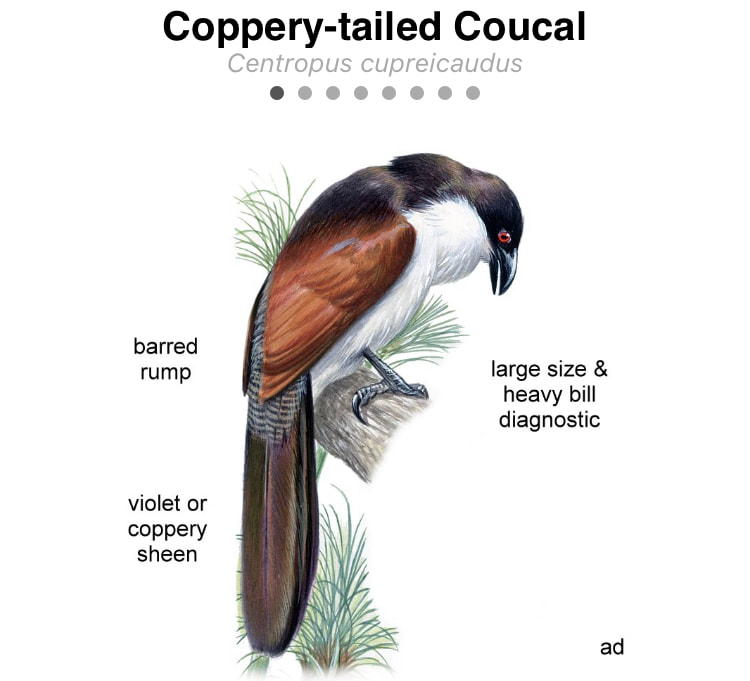
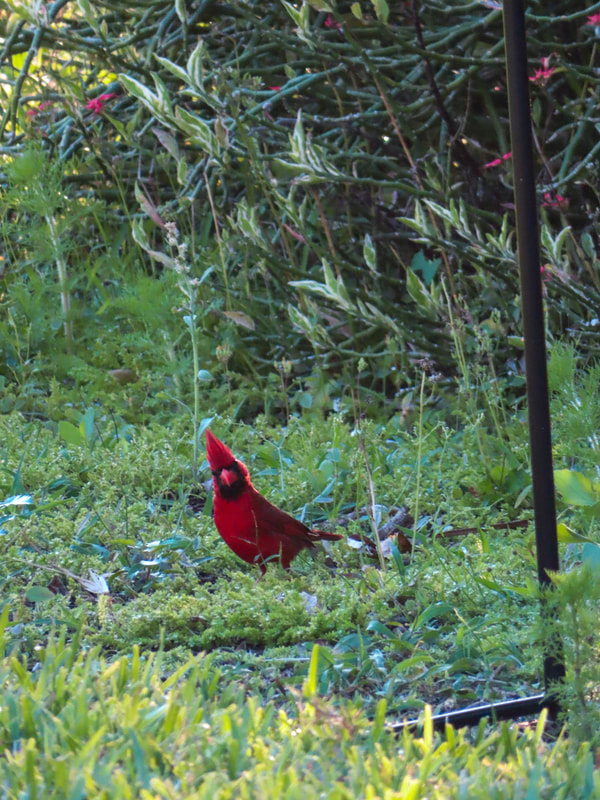
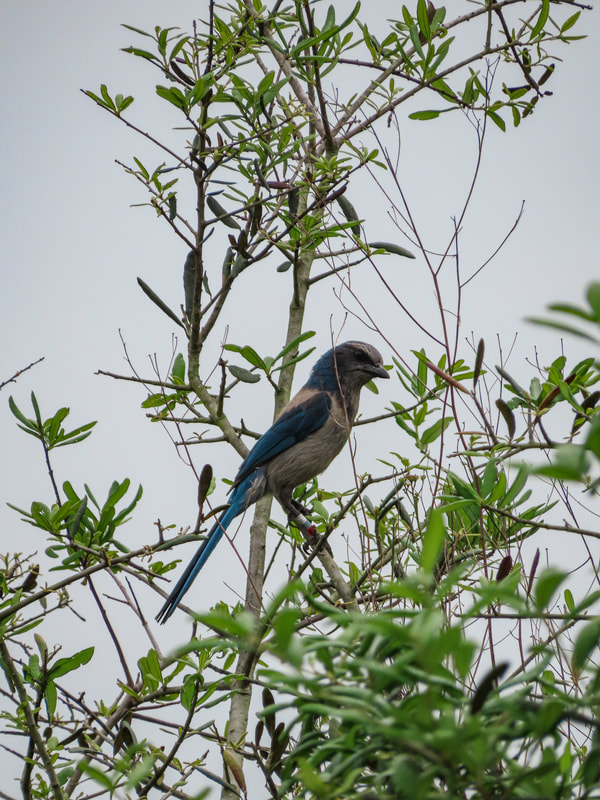
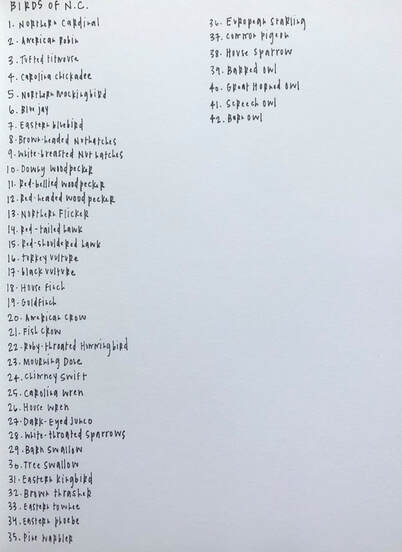
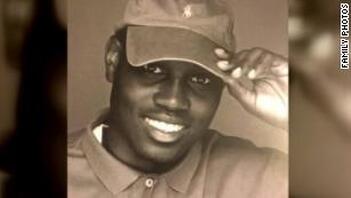
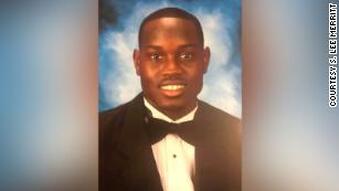
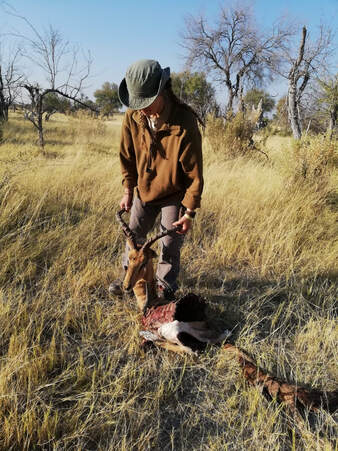
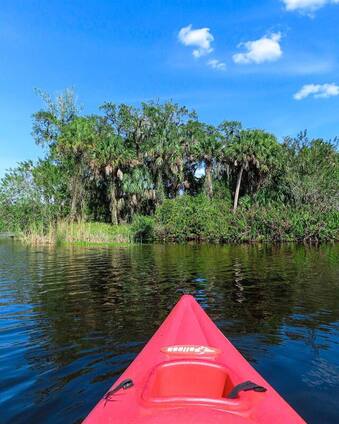
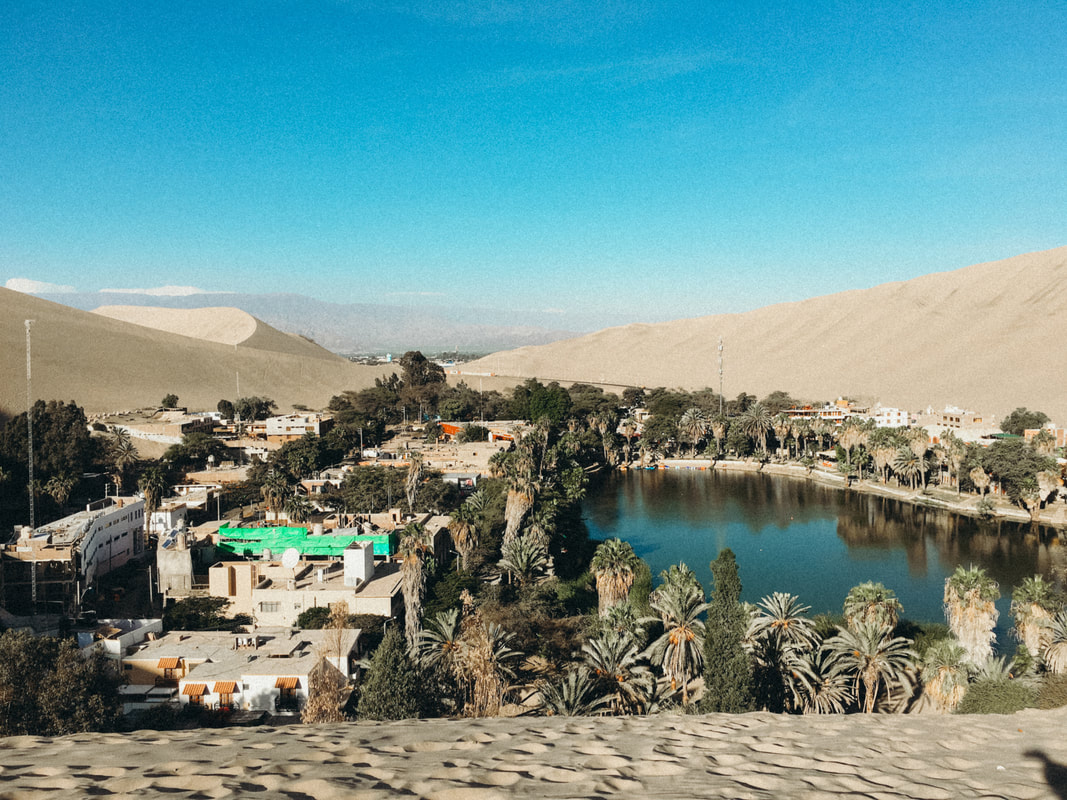
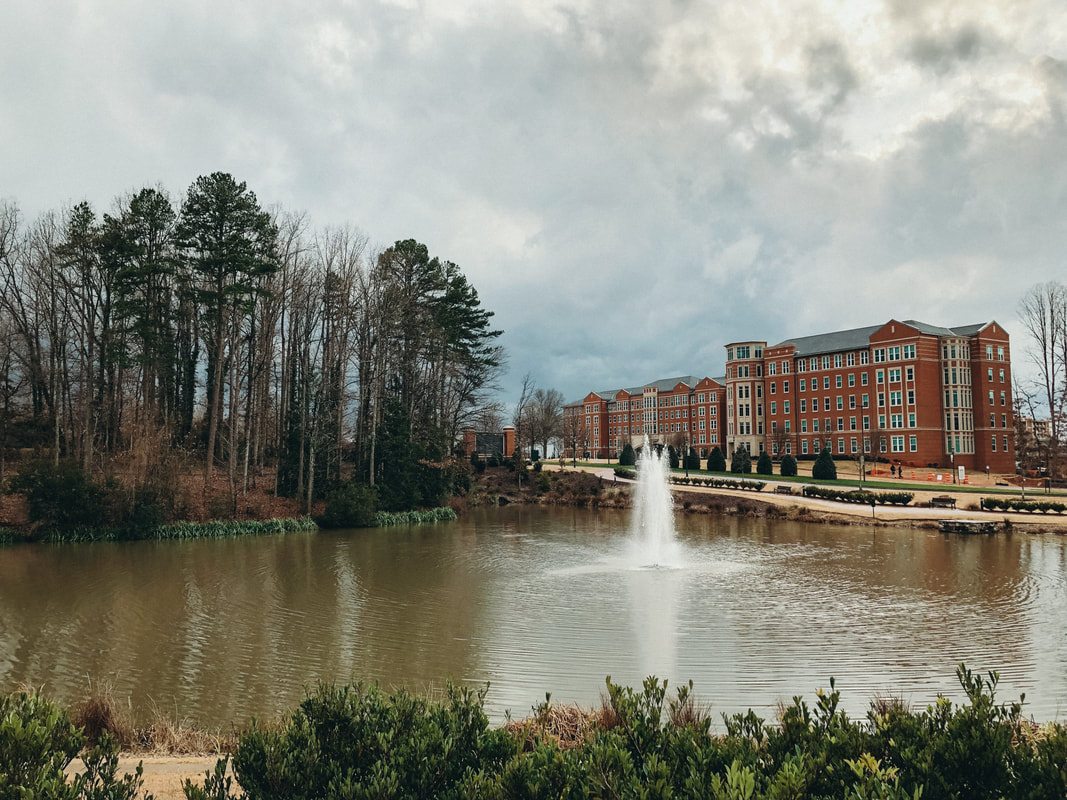
 RSS Feed
RSS Feed
